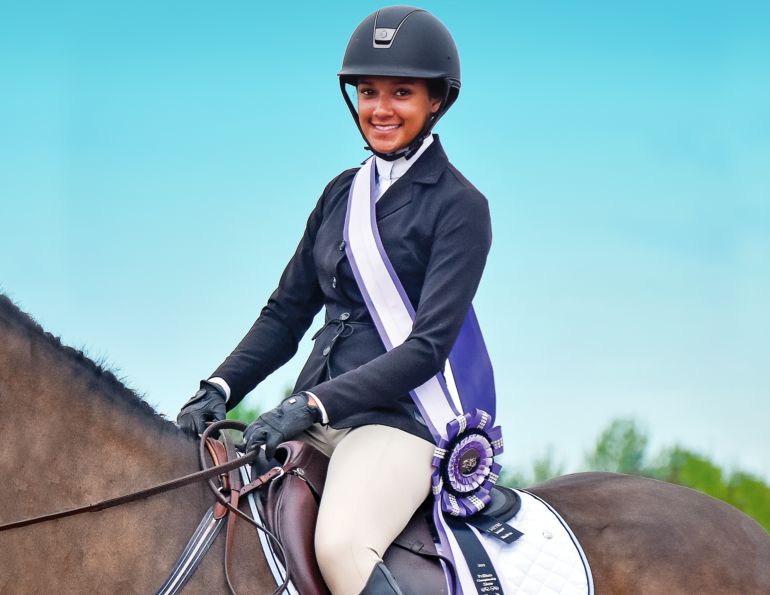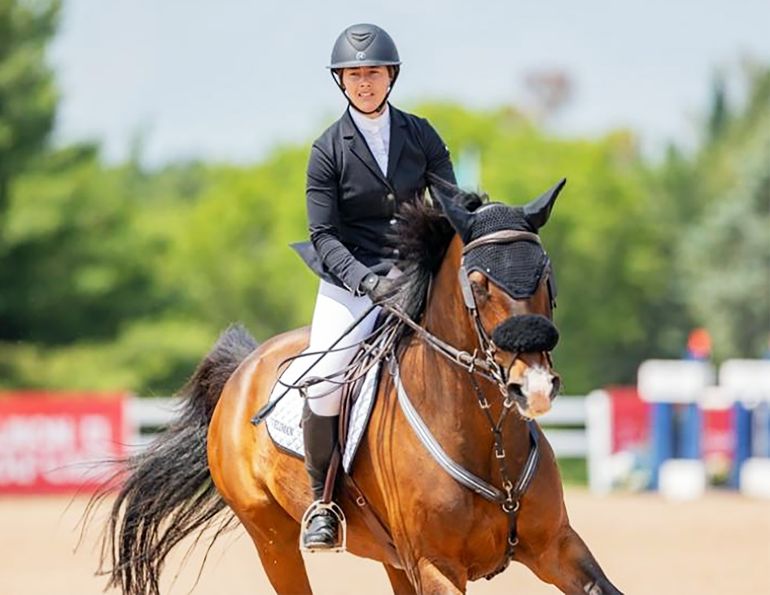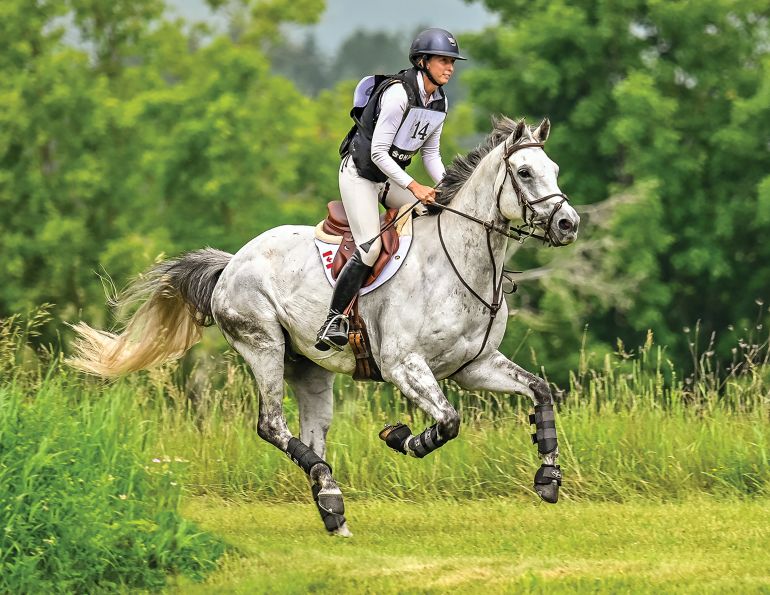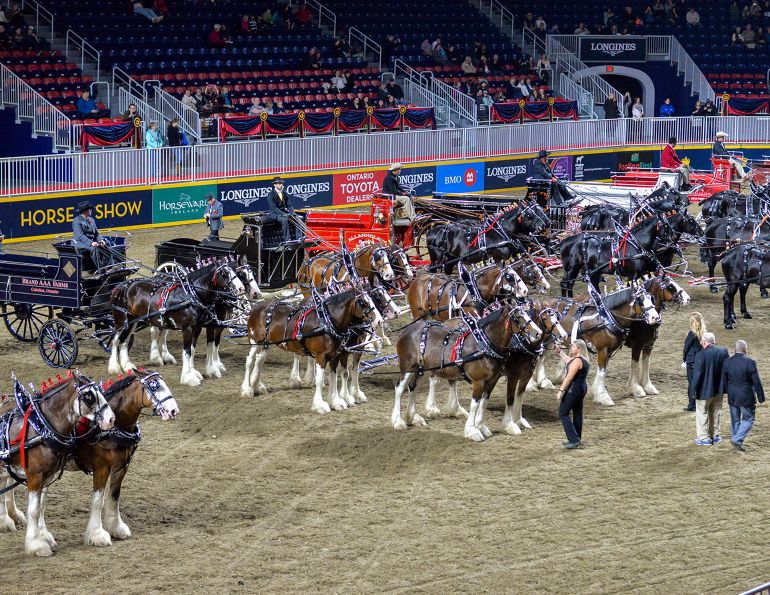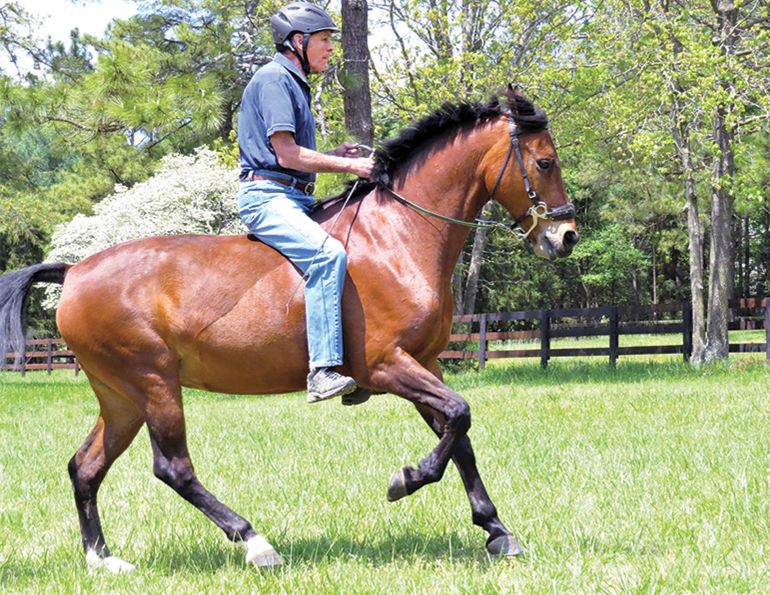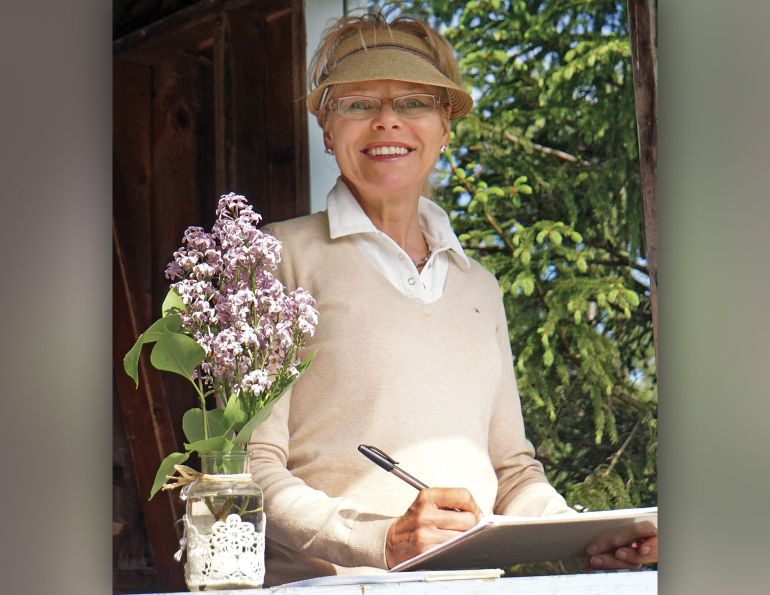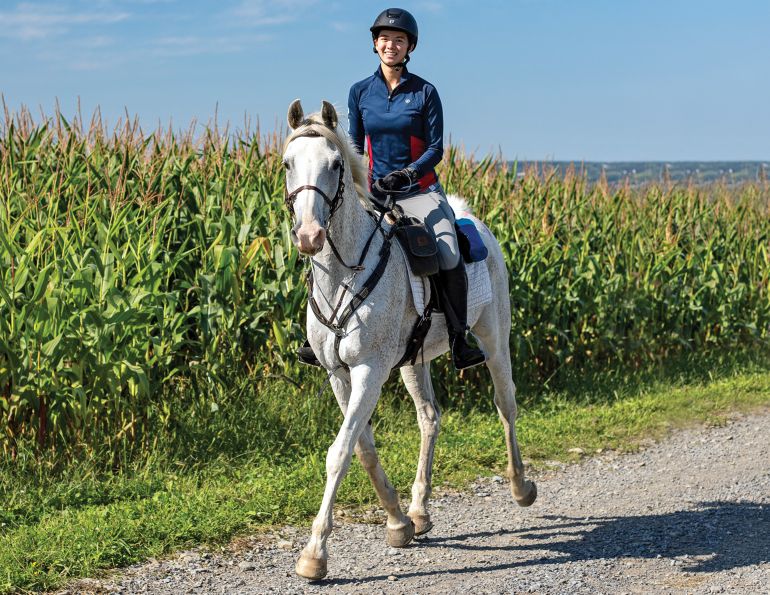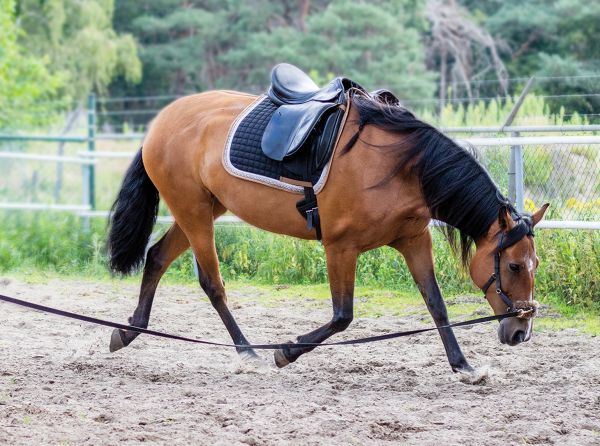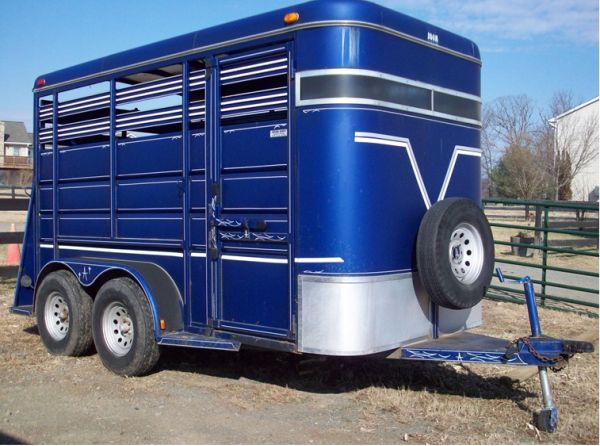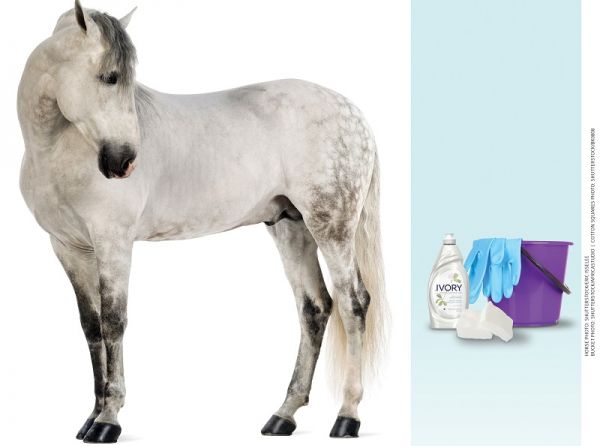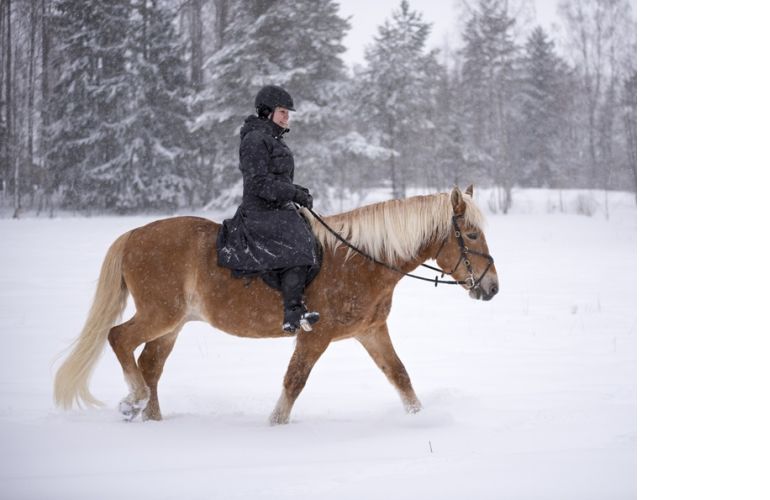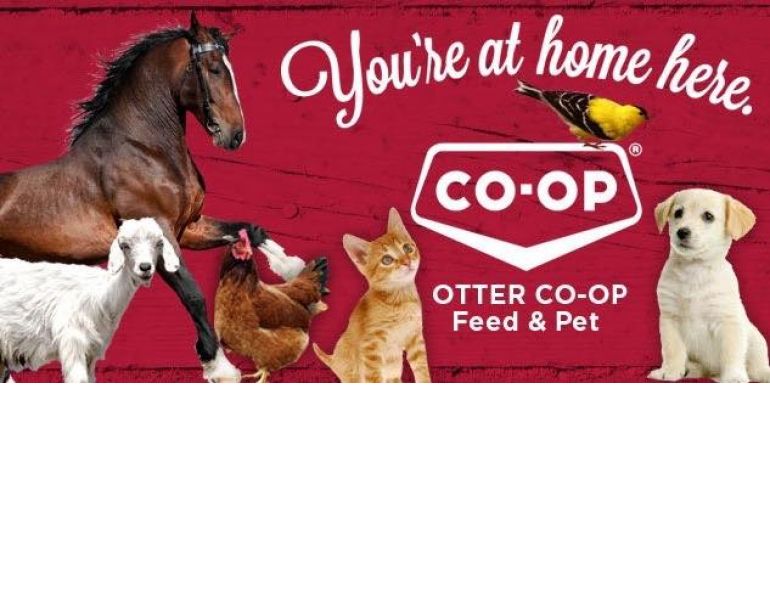By Tania Millen, BSc, MJ
Many youth dream of becoming horse industry professionals — training horses, coaching riders, managing a stable or riding professionally at top level. Significant barriers stymie those attempting to pursue success, regardless of their talent and enthusiasm. There’s no streamlined path to follow that develops the needed horsemanship, business knowledge, training, and coaching skills required of professional riders, barn managers, and coaches. Hence, up-and-comers often gain experience by becoming working students — exchanging everyday hard work for riding lessons, mentoring, and industry networking. But dangers lurk. Navigating non-contractual agreements where long hours of physical labour are exchanged for riding opportunities, showing, horse board, accommodation, and other perks is challenging for young adults who may not know their potential employers. We asked five riders who are familiar with working student gigs in Canada to share their thoughts on how to leap the student-professional gap. Here’s what they said.
Maddy Scott, Eventing
At age 27, Scott is a member of Canada’s high performance three-day-eventing team and a newly-minted professional based in Florida.
“I’ve been teaching and doing everything completely on my own for about six months,” says Scott.

Maddy Scott with Crosby’s Gold. “Being a successful rider isn’t just about having the best coaches and a perfect fitness program; it’s about horsemanship and how horses are managed in the barns,” says Scott. Photo: Maddy Scott Collection
She worked for Kyle Carter, a Canadian Equestrian Team three-day event rider for the previous five years — starting as a working student and making her way up to barn manager, assistant trainer, and head groom. Prior to working for Carter, Scott was a working student for a three-day-event rider in her home province of British Columbia (BC) for about seven years, spent six months in New Zealand with a top rider, and groomed for Canadian young riders while working her way up the competition levels. An early mentor advised Scott, “You’re never going to get anywhere staying in your hometown and working with local people. You have to go and work for the best riders.”
“Kyle taught me so much about barn management and how to schedule your days, weeks, and months; your overall goals and short-term goals,” says Scott. “He has minute by minute daily scheduling which — when you have client horses and sales horses, teaching and riding your own horses, keeping competition horses in shape, and taking your own lessons — is really the only way to do it if you want to be successful, have good financials, and compete with the best riders and trainers.”
“I’ve met incredible people through Carter and have worked hard to put my name out there. It’s paying off.”
Lexi Pratt, Dressage
Pratt grew up in Kamloops, BC and began starting young horses and training complicated horses in her teens.

Lexi Pratt believes that finding the right mentor is key to being a successful working student. “The challenge is finding somebody that values you as much as you value them.” Photo: Tanna L’Esperance
“I got to the point where I needed more tools in my toolbox,” says Pratt. “I’m really ambitious and willing to work hard so I started taking working student positions. After a couple of experiences, I burned out and fell out of love with the sport and the industry. Then five years ago, I took a working student position with a high-performance dressage coach and she really brought back my love and drive to continue.
“She pushed me to go and see more of the horse world,” says Pratt, who subsequently moved to Ontario and developed her riding up to Fédération Equestre Internationale (FEI) levels in another working student position.
“Every day I pinched myself and thought Is this my life? I’m living my absolute dream,” she says.
Most recently, Pratt began an assistant trainer job for a Canadian Olympic dressage rider, continuing her journey toward professional status. She’s now age 25 and spent eight years in working student positions.
Related: From Small Town to Big Time - Reiner Lisa Coulter
Related: Psychology of a Successful Horse Rider
Miah Willard, Jumpers
Willard is age 18 and recently started her first working student position at a jumper barn in Saskatoon, Saskatchewan.
“I want to get into professional training,” says Willard. “So, I found a working student position to get experience training horses and how to run a business.”
She does basic barn chores, rides two to five horses per day, has regular lessons, accommodation, board for one horse, and free trailering to shows for her horse.

Miah Willard’s goal is to be a professional horse trainer and operate a horse business. Of her working student position, she shares, “I’m learning a lot and riding more horses each day than I expected.” Photo: Mark Wickenheiser
“I didn’t know what I didn’t know,” Willard says. “I’m learning a lot and riding more horses each day than I expected.” The position is open-ended, and Willard expects to stay for a few years while honing her skills.
Kamryn Baker, Ranching and Horsemanship
Baker started working intermittently at a natural horsemanship ranch in Valemount, BC three years ago when she was age 16, and interned in Germany last year.

Kamryn Baker is aiming for a career focused on horses and ranching. She says colt starting and ranching are challenging with more opportunities for guys. “Hang in there when you feel like you’re not getting better,” she advises, “because in reality, you are.” Photo: Tania Millen
“I want my life to revolve around horses and ranching,” says Baker. “I plan to go to different trainers and ranches to learn and get better, then eventually be able to say that I’m a professional.
“Colt starting and ranching is male-dominated and as a young woman, there are challenges,” she says. “Often there are more opportunities for guys. Physically, it can be difficult too, so women have to have better technique. The biggest thing for me right now is lack of confidence — fear of not being good enough.”
Related: Demonstrate Emotional Intelligence
Related: How to Build High Performance Belief Systems for Equestrians
Team Irwin Dressage, Working Student Program
Tina Irwin is a Canadian Pan-American Games medalist who operates Team Irwin Dressage in Stouffville, Ontario with her husband Jaimey, who is also a Canadian dressage team rider. The Irwins were working students in Canada and Europe before starting their training and coaching business and now run an internationally-renowned working student program. They generally have two working students, some of whom bring their horses.

Tina Irwin operates Team Irwin Dressage with her husband Jaimey. Both Tina and Jaimey were working students before launching their training and coaching business in Stouffville, Ontario, which usually employs two working students. Being a working student is “hard work and a steep learning curve,” says Tina. Photo: KTB Creative
“It’s hard work and a steep learning curve,” she says. “Students learn the day-to-day operations of a top-level dressage barn and how to care for high performance athletes. Attention to detail is very important. Often the students have experience working in stables, but our operation is the next level.”
Students receive lessons on a schoolmaster or their own horse five days per week, accommodation, a vehicle, board for a horse, and some pay. They also have opportunities to lease horses and travel to Florida to compete.
“When you groom for a high-performance athlete, you get to see the top riders, how the horses are cared for, and be part of that competition scene,” says Irwin.
In return, students help reduce the Irwin’s staff costs, plus are part of the Irwins’ efforts to give back to their sport by assisting upcoming riders and future professionals.
“We’ve had a couple of riders that have gone on to become professionals,” says Irwin.
For those seeking working student positions, Irwin suggests getting as much information as possible about the position prior to committing. She says a trial run is preferable, such as spending a day at the farm or taking lessons from the potential mentor to ensure a good fit.
“If you’re really committed and want to be a professional in the horse industry, starting out as a working student is the way to do it,” says Irwin.
Related: How to Maximize the Benefits of Our Connection with Horses
Related: Horse Riders Are Athletes
8 Tips For Becoming a Horse Industry Professional
1. Discover Your Superpower
Everyone has different skills — riding, training, coaching, and caring for horses. Figure out what you’re best at, then develop those skills to expert status.
2. Identify Mentors
Nobody advances in a vacuum. Mentors can provide guidance, identify opportunities, offer emotional support and encouragement, plus honestly answer questions about the horse industry.
“It’s important to have someone that can mentor you through riding, training, or business problems,” says Irwin. “Somebody who you want to be like; whose values you share.”

Tina Irwin says working students must be ready to work hard and do whatever job needs to be done without feeling it’s not part of their job description. Irwin is shown helping a working student.\Photo: Heather Leach.
“I think the challenge is finding somebody that values you as much as you value them — someone who’s willing to give you opportunities and wants to grow their career in a way that also benefits you,” says Pratt.
3. Learn How To Be A Student
Learning to ride is a long game. Unlike many other sports where athletes peak in their twenties, FEI results indicate that equestrians generally peak in their forties and fifties. Choosing a professional equine career means learning and developing skills for much of your life.
“Be open to learning different things and continue adding skills to your toolbox,” says Baker. “Hang in there when you feel like you’re not getting better, because in reality, you are.”
4. Find Motivation, Develop Resilience
Being a working student is tiring. Burnout is real.
“Be ready to work hard and do any job without feeling like you’re too good for it,” says Irwin. “When you’re running your own business, nobody else will be picking up a broom, cleaning a stall, getting your horse ready, picking weeds, or watering the flowers.”
“It’s a mental game,” says Scott. “You have to have self motivation and drive. There are so many emotional and physical aspects [to horse sport] and the highs are so high and the lows are some of the lowest points of your life. You have to know how to handle those, keep going, and provide the best care to your horses.”

To succeed in a professional career with horses, determine what you’re best at, then spend your career learning and developing your skills to expert status. Pictured is Pan American medalist Tina Irwin. Photo: Uniqcorn Exceptionnel
5. Build Riding and Training Skills
This may sound obvious, but high-level riding and training skills are required to compete at top level or train horses professionally. That doesn’t just mean being skilled, but having an effective position, treating horses as sentient beings, understanding equine learning theory, and using the correct tack and equipment.
“It takes quite awhile to solidify your riding,” says Irwin. “People think they’ll just be a working student for six months and then start their own business. It’s not that easy. You have to commit for long enough to get a strong foundation.”
Related: How to Build High Performance Believe Systems for Equestrian Athletes
Related: The Mental Game - Sport Psychology for Equestrians
6. Learn Equine Management
Horse care knowledge and skills are imperative. The better the care, the more likely the horse is to remain happy and perform well. Good care also garners better clients and higher quality horses. Those intent on becoming professional grooms or barn managers must become go-to resources for riders and owners.
“Being a successful rider isn’t just about having the best coaches and a perfect fitness program; it’s about horsemanship and how horses are managed in the barns,” says Scott.
7. Begin Coaching
Developing coaching skills alongside riding and training abilities increases opportunities. Adult clients or a student’s parents may become syndicate owners, require training services, or prefer their horse to be shown by someone else, all of which could benefit an upcoming professional. Teaching others can be a lucrative way to get ahead.
“Here in Florida, riders can choose to be coached by gold medalists,” says Scott. “So, prior to turning professional, I wanted to have enough knowledge to hold my own when I’m standing in a warm-up ring with coaches who have won gold medals and been to world games.”
8. Develop Business Savvy
Horses and their accoutrements (trucks, trailers, saddles, and all the rest) are expensive, so a significant part of making the leap from student to professional is figuring out how to make a living. Creating a business involves accounting, marketing, networking, and long-term relationships. Building a brand for business differentiation is important, too. Every business has to offer something unique that makes a potential client want to spend their money at one barn, trainer, or coach over another. Equestrian professionals often need a variety of skills to be financially successful, such as training, coaching, providing care, or buying and selling. Hence, understudying the horse industry plus obtaining basic business savvy are imperative.
“People will see the hard work, time, and effort you put in and will start to trust and respect you,” says Irwin. “It takes time, and you have to be in it for the long haul.”
Related: Understanding Equestrian Canada's Coach Status Program
Related: Pony Club - Incubating High Performance Riders
Main Photo: Maddy Scott riding Crosby’s Gold. Photo: Shannon Brinkman Photography







